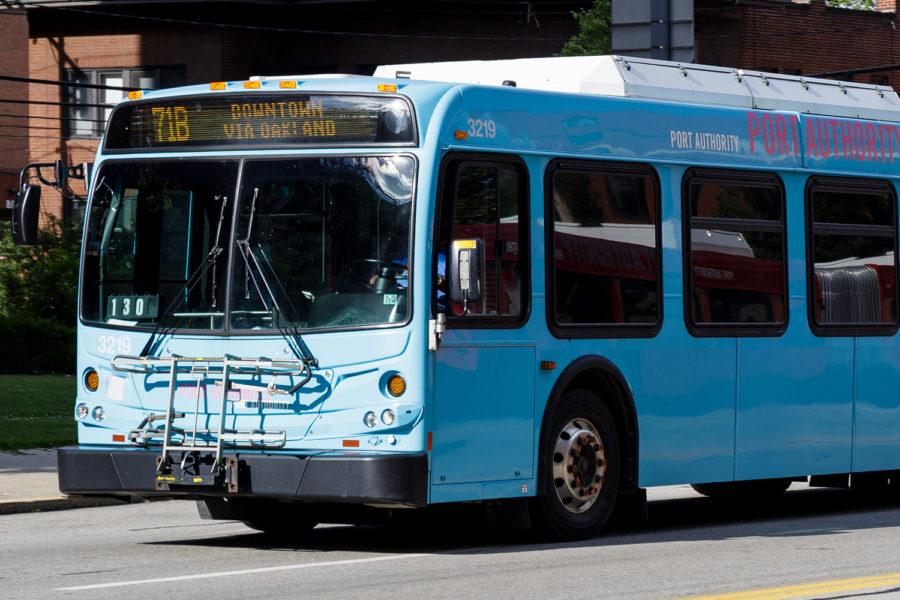Opinion | Pittsburgh is a city, not just where you go to school
August 24, 2021
I have lived in Pittsburgh my entire life. But it wasn’t until I became a student at Pitt that I realized just how separate student life seems from the rest of Pittsburgh, despite the fact that Pitt’s campus is in the middle of the City.
I have always heard Pittsburgh natives talk about college students with a twinge of annoyance, but once I became one I started examining ways that I could be the least annoying college kid possible. I started viewing myself and how I fit into this City differently, but I also noticed how other people in the City began viewing me.
People on the buses I’ve taken nearly every day started to look at me and my large backpack with disgust — even when I tucked it under the seat to make space for others. Sometimes I feel like I need to shout from the rooftops, “I don’t just go to school here! I live here! I belong here! I care about this City, what happens to it and the people in it!”
Buses are only the beginning — Pitt students, administrators and organizations seem to contribute as little as possible to the City they reside in. The COVID-19 pandemic only exacerbated this problem as some students partied and disregarded COVID-19 guidelines without a thought as to how rising case numbers affect the rest of the City.
I am begging the Pitt community to realize something I thought I would never have to say — Pittsburgh is a city, not just where you go to school.
The most obvious example is Pitt administrators’ handling of the pandemic. Not requiring vaccines, not enforcing masking and social distancing with the appropriate vigor to stop the spread of COVID-19, and the wishy-washiness of the operational postures show blatant disregard — not just for the lives of the students and faculty, but also for Pittsburgh citizens.
We can’t forget that Pitt housed essential workers during the height of the COVID-19 pandemic when going home to their families wasn’t an option. But one act of charity to the community during times of crisis is not enough for the biggest university in the Pittsburgh area. Our student body makes up a significant portion of the City’s population, and our buildings and medical facilities are two of the largest employers in the City.
It falls to students to make the largest difference — to make individual choices that help their communities and to push Pitt’s administrators to do better in supporting the City they call home.
On an individual level, there is plenty that students can do to be less removed from Pittsburgh. First and foremost are the obvious things — don’t sit in the handicapped seats on the bus, and don’t take up the entire sidewalk when you walk on Forbes.
Keep campus and South O clean. I know it has a dirty reputation to keep up, but just think about how much nicer it would be to walk the streets of Oakland when they aren’t covered in trash. New York University is located in a city known for subway rats that eat pizza, and it somehow manages to keep its campus cleaner.
But those things are just minor annoyances to the people of Pittsburgh. More importantly, keep the partying during a pandemic to a minimum, get a vaccine and wear a mask.
Pitt has hundreds of student organizations on campus that cover all interests. While many of them are invested in giving back to the City — some are formed for that very purpose — there are others that Pittsburgh citizens never see. These organizations should be trying to host events that anyone can participate in.
Just before I graduated high school in spring 2019, I attended the Latin American food festival between Hillman Library and Posvar Hall. I was in awe of the event the Center for Latin American studies organized and that it was open to the public in the first place.
I remember thinking, “Pitt should always have events like these that are open to the public.” Not only do they give Pitt students something to do on the weekends, they also strengthen the bond between Pittsurgh’s different communities and the University’s students and faculty.
Pittsburgh has a myriad of issues that can be improved, starting right here in Oakland. With the power of almost 20,000 undergraduate students, Pitt can make some significant, positive changes to this City that don’t just benefit the University.
Carnegie Mellon University monitors Pittsburgh’s air quality, but sadly, monitoring isn’t actually doing enough to fix the problem of bad air quality in Pittsburgh, other than to, well, monitor it. With the right minds and number of people on the job, Pitt students and faculty — working with City officials and other universities — can work toward solving Pittsburgh’s air quality problem beyond just putting up sensors — things like planting trees, fundraising for and installing green spaces and technology into and onto campus buildings and inspiring fellow students to lower their own pollution emissions.
Participating with Pitt Make a Difference Day, MLK Day of Service and Community Engagement Centers is not required for all students, and does nothing to build a sense of respect for the city of Pittsburgh in every single student on campus. Each of these two service days only happen once a year. If we, as students, focused on making this City a better place to live for every Pittsburgh resident every day of the year instead of just two, Pitt students would have a higher level of respect for the City they live in and would be helping the people in that same City on a much larger scale.
Some universities, such as the University of Wisconsin-Eau Claire, require service-learning activities to graduate. Their program only requires 30 hours per student, which may not seem like a lot. But when applied on a scale as big as Pitt’s undergraduate body, real change would be possible — in solving City issues as well as changing students’ mindsets from seeing Pittsburgh as the place they will live to seeing Pittsburgh as a city where thousands of others live.
But why stop at just Oakland? Why not have student-wide initiatives to go green, provide resources to the homeless population of Pittsburgh, help keep the City clean of litter, tackle racism at every level, beautify spaces, grow food to help eliminate food deserts and more?
We need to move beyond just raising money and protesting. As students, we need to create grassroots change. The possibilities are truly endless as to what Pitt students can do when they make an effort to care about the City they live in.
Dalia Maeroff writes primarily about issues of psychology, education, culture and environmentalism. Write to her at DAM291@pitt.edu.




